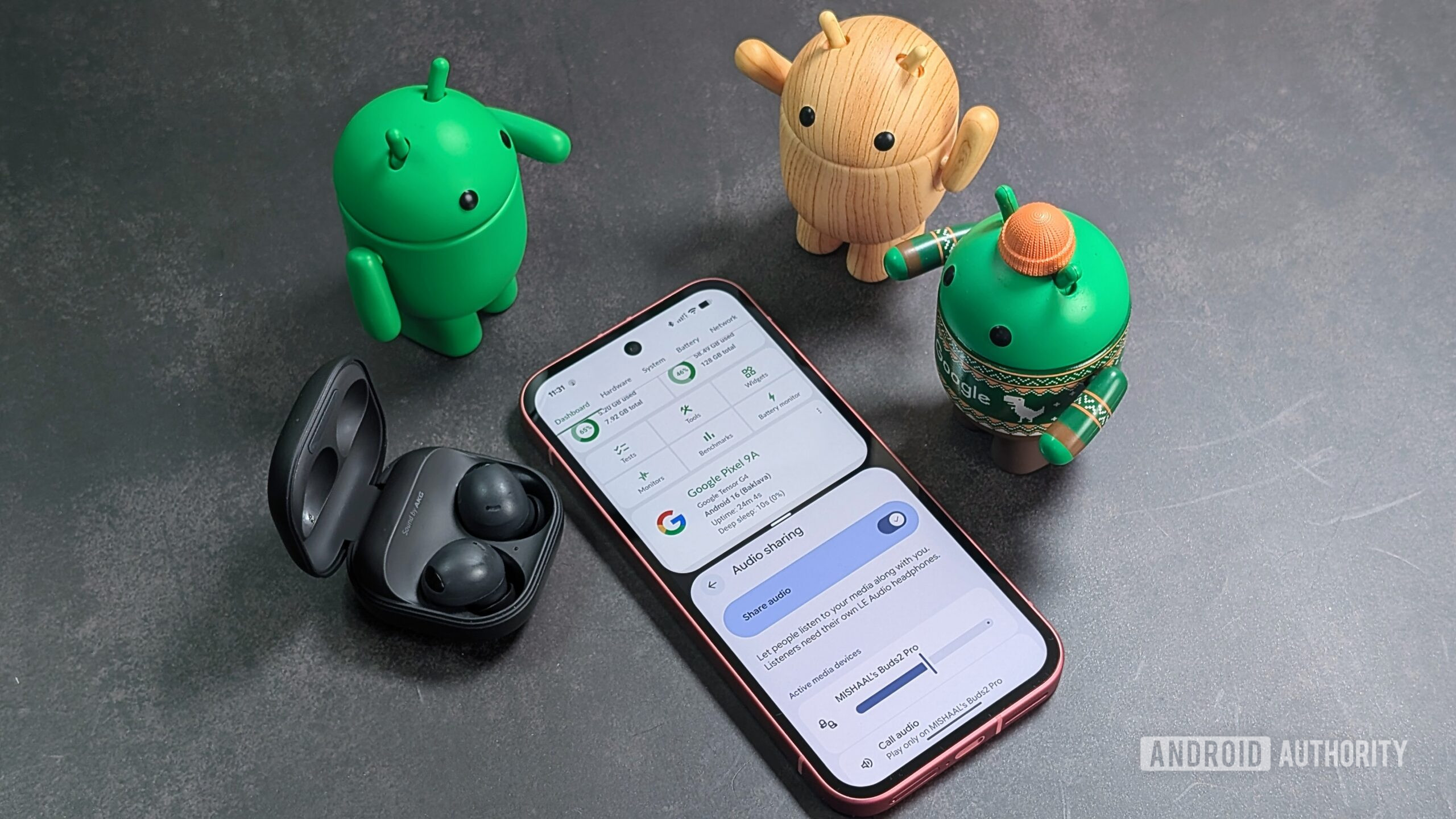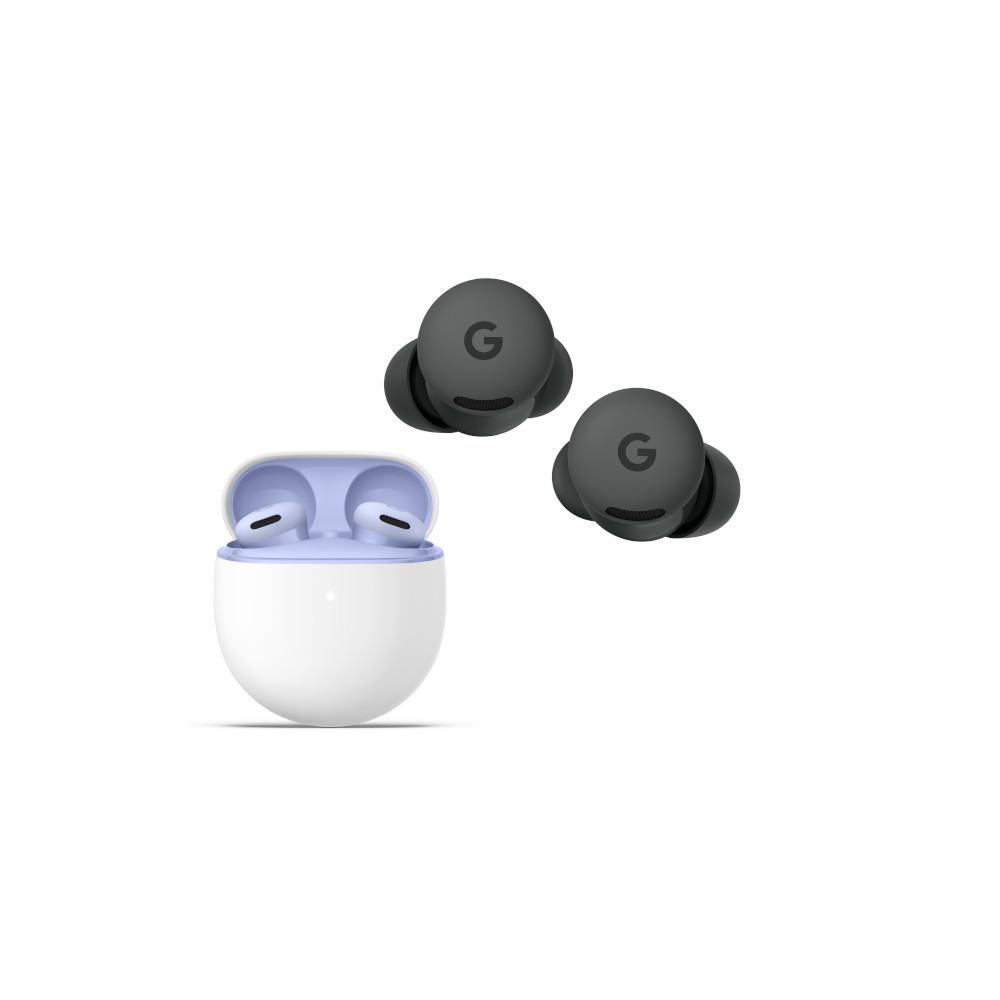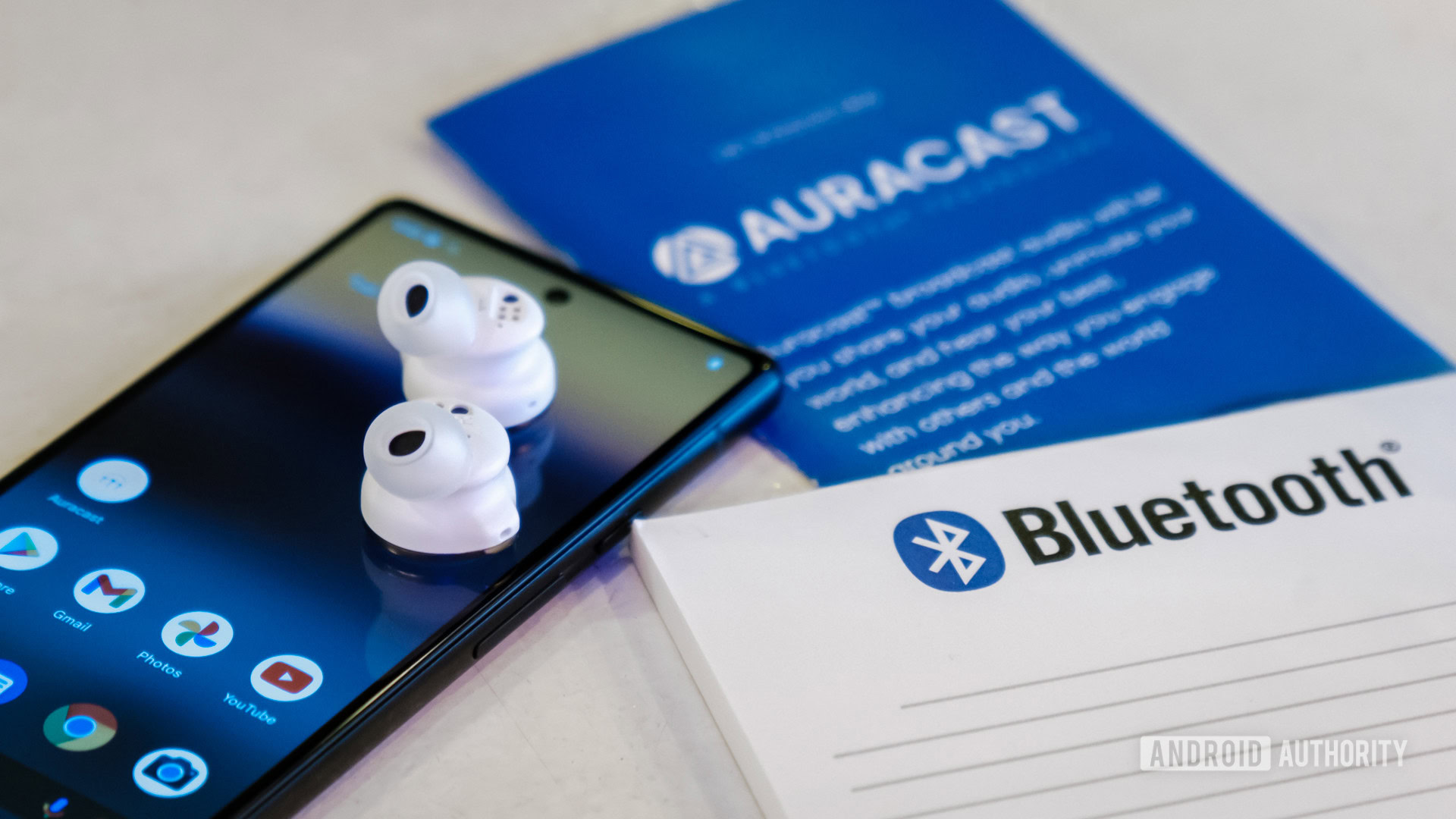TL;DR
- Google’s new Pixel Buds 2a lack Bluetooth audio sharing, highlighting a confusing and inconsistent implementation of the Auracast feature across Pixel devices.
- The feature is mysteriously disabled on the Pixel Buds Pro 2 when paired with a Pixel phone and artificially blocked on budget A-series phones.
- This haphazard approach hinders the adoption of the universal Auracast standard, which could solve audio sharing issues for all consumers.
Google’s newly announced Pixel Buds 2a are a big step up from the original A-series, boasting a more durable design, ANC, the Tensor A1 processor, and multipoint connectivity. It’s great to see the company bring so many features from its premium earbuds down to its budget lineup. However, the absence of Bluetooth audio sharing on the Pixel Buds 2a isn’t just a simple omission. It’s part of a confusing pattern we’ve recently discovered regarding audio sharing support across Pixel devices, leaving us questioning Google’s overall plans for the feature.
Don’t want to miss the best from Android Authority?
Audio sharing is a feature that allows you to start or listen to an audio broadcast. You can either share your own device’s audio with one or more nearby devices or join an existing broadcast started by another device. These broadcasts are transmitted over Bluetooth Low Energy and can be started or joined by any device that supports Auracast, the Bluetooth technology that enables this feature.
This is where things get complicated. Back in March, Google announced that Pixel 9 owners running Android 16 would be able to stream Auracast broadcasts. The company highlighted Auracast’s use in hearing aids but made no mention of its use for general audio sharing. This omission is strange for a few reasons. First, when Android 16 rolled out to the Pixel 9 series in June, Auracast support wasn’t enabled by default and required users to toggle it on in developer options. Second, the Pixel 9 series isn’t the only device family to support Auracast; the Pixel 8 series does as well. Finally, Google’s own Pixel Buds Pro 2 support Auracast, yet the announcement failed to mention them.
Mishaal Rahman / Android Authority
The first point is easily explained by the fact that the feature is now available by default in Android 16 QPR1, suggesting Google simply wasn’t ready to launch it in June. While this is a minor issue, Google should have better communicated the delay to its users. (The company still doesn’t offer any support pages on the feature, for instance.)
The second point is harder to explain. We’re certain the Pixel 8 series supports Auracast; otherwise, Google wouldn’t have gone out of its way to enable the feature on those devices. I haven’t noticed any issues using Auracast on my Pixel 8 Pro, though I can’t guarantee the experience will be flawless for everyone.
The last point is the most confusing. When Google initially launched the Pixel Buds Pro 2 last year, Auracast worked perfectly. Now, however, the feature seems to be disabled on new units. For months, we assumed Google had pushed a firmware update to block it, but a recent discovery by a Reddit user suggests the block isn’t on the earbuds at all. They found that Auracast can be re-enabled on the Buds Pro 2 by simply resetting the paired Pixel phone’s Bluetooth settings. This wouldn’t be possible if the feature were disabled at the firmware level. To confirm the block was indeed on the phone side, I asked my colleague, Adam Birney, to test his Pixel Buds Pro 2 with a non-Pixel device, the Samsung Galaxy S25. Lo and behold, Auracast worked.
We don’t know why Auracast is disabled on the Pixel Buds Pro 2 when paired with a Pixel phone. When we asked Google for an update, a spokesperson told us they “have nothing new to share about Auracast at this time.” It’s possible Google ran into unresolved issues and chose the simplest path to hide the feature from most users. But since the company won’t comment, we’re left to speculate.
The Pixel Buds Pro 2 fiasco isn’t the end of the story. Google may also be artificially limiting the feature on its budget A-series phones, likely to push users toward its more expensive models. When we first reported that A-series phones would miss out on Auracast, it was unclear if this was due to hardware limitations or product segmentation. While we still can’t confirm the Pixel 8a’s capabilities, we were able to enable and use Auracast on a rooted Pixel 9a, proving its omission is a software block, not a hardware one.

Mishaal Rahman / Android Authority
There’s nothing inherently wrong with limiting software features to select models. Companies need to differentiate their products beyond hardware, and software development costs time and money. But Google’s haphazard approach to Auracast — from the issues on the Pixel Buds Pro 2 to the lack of support on the A-series — suggests a lack of interest in pushing the standard forward. Currently, Samsung feels like the only major company that truly cares about Auracast, bringing it to a wide range of its phones, tablets, earbuds, and TVs.
This is a shame, because Auracast is a brilliant technology that solves a common Bluetooth headache: sharing audio. Anyone who has tried to watch a movie with a friend on a plane knows the struggle. Current audio-sharing solutions are a mess — some are proprietary and only work with a specific brand’s earbuds, while many devices lack the feature entirely.
Auracast is meant to be the universal solution, but it’s stuck in a vicious cycle. If phone makers like Google don’t widely support it, headphone makers have no reason to prioritize it. And if few audio products support it, phone makers have little incentive to add it. Ultimately, consumers lose out. I hope Google addresses these rollout issues and champions Auracast with the same energy it’s giving to Qi2 support on the new Pixel 10.

Google Pixel Buds 2a
Twist-to-adjust stabilizer • ANC • Binaural audio support
Budget price, premium features.
The Google Pixel Buds 2a are the 2025 budget-friendly Pixel Buds offering. As the smallest and lightest A-series buds yet, the Buds 2a are equipped with ANC, a twist-to-adjust stabilizer, and the Tensor A1 chipset. They integrate with Gemini AI tools, and offer an IP54 rating. Don’t let the word “budget” fool you, the Buds 2a offer up to 10 hours of music playback per charge, an easily repaired charging case, Binaural audio support, and Bluetooth 5.4 connectivity with Multipoint switching.
Thank you for being part of our community. Read our Comment Policy before posting.








